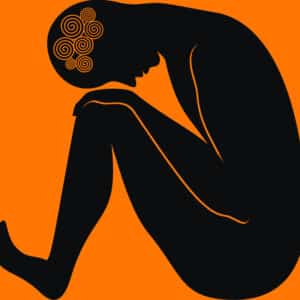Written by: Sabrina Popernitsch
Published: August 2nd 2023
OCD, or Obsessive Compulsive Disorder, is often used as a humorous sentiment for people who like perfection, or for people who have a focus on cleaning, organization, or rigid parameters for themselves. While OCD may encompass some of these qualities, the experience of OCD is far from a humorous experience, and in actuality is labelled as one of the top ten most debilitating illnesses noted by the WHO (World Health Organization). People with OCD often suffer with the disorder in silence – mostly because of the pervasive nature of the inaccurate depiction of OCD. While OCD occasionally includes rigidity, organization, cleaning, or perfection, it expands far beyond this.
OCD is characterized by:
- Obsessions -Persistent and intrusive unwanted images, urges or thoughts that cause distress or anxiety, resulting in compulsive behaviours or acts.
- Compulsions -Repetitive behaviour or mental acts that a person feels driven to perform as a result of the obsessions, intrusive thoughts, urges or images.
- Ego-dystonia -The experience of both obsessions and compulsions being UNWANTED by the person experiencing them.

OCD can include obsessions surrounding ANYTHING, and because of this, hides and masks itself as anxiety, depression, or other mental health disorders. Some of the following are types of OCD:
- Relationship OCD
- Pedophilia OCD
- Pure Obsessional OCD
- Hoarding OCD
- Symmetrical OCD
- Religious or “scrupulosity” OCD
- Just Right OCD
- Aggressive or Harm OCD
While this list is long, the realms of OCD are expansive, and everyone who experiences OCD has a distinct experience of the disorder. While it can be categorized into specific “types” or categories, individuals with OCD will tell you what compulsions work for them, and what do not – this can make OCD tricky to treat, but with years of study, there are evidence-based treatments that can be supportive in conjunction with medication – alongside the support of a trained clinician. One of the main treatment protocols for OCD is Exposure and Response Prevention (ERP) which aims to build tolerance to the obsessions and decrease the interactions with the compulsions. Up-and-coming treatments for OCD include Inference-Based CBT and Internal Family Systems – both of which can be used in conjunction with ERP.
Many people who are diagnosed with OCD are successful in their treatment and can live fulfilling lives; some people go as far in their treatment and healing to no longer fit the DSM-V criteria for the disorder. While OCD can feel like it has control over your life, the possibility of regaining control over your thoughts and actions is a reality. With time, dedication, and a supportive practitioner, you can move forward in your life and find the security and fulfilment you deserve.



